This is the second part of a series based on my experiences driving in New Jersey. For anyone who may not have been here, in New Jersey the 'rules of the road' are unique and I've learned some valuable lessons from many of these experiences behind the wheel. 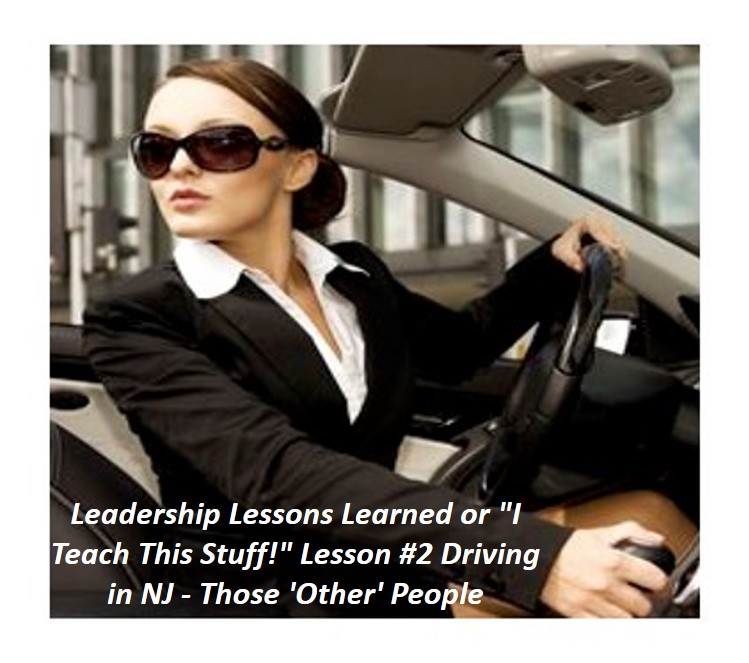
Before being an independent business professional I had been employed by several large corporations and I learned this lesson when I was commuting to one of them located in a large metropolitan city. My commute at the time consisted of a three-and-a-half-mile drive to the train station which would take approximately 15-20 minutes; and then about a 45-minute train ride to the office. Consequently, precise scheduling was necessary to get from my house to the train station; and if I missed the train I risked arriving late to the office.
Get Out of My Way
One morning, however, I learned a valuable lesson. When the alarm sounded this day, I decided I had plenty of time and procrastinated for an extra ten or fifteen minutes. However, things didn't go as planned that morning and, as a result I was running 'late.' Upon leaving the house I was rushing and feeling anxious. As I exited my driveway and proceeded to drive down the street, wouldn't you know it -- there was a car in front of me that must have been traveling at no more than 15-20 miles per hour (the speed limit is 35)!
Note: In my earlier entry, I mentioned I'm a strong extrovert and tend to 'converse' with the other drivers on the road (I don't think I'm the only person who does this.)
The Snail's Pace
As we 'crawled' down the streets of my home town at a 'snail's pace,' I proceeded to have a heated discussion with the driver of the car in front of me... well, let's just say I told them they were 'lacking intelligence' and did not possess 'good driving skills.' Don't they know that "I've got to get to the train station! Get out of my way!"
Finally! They're turning. But, wouldn't you know it; as soon as the first one turned and moved out of my path, another car driven by a 'less than intelligent person who didn't know how to drive' pulled out in front of me! I proceeded to let them know that they did not possess the intelligence to have a driver's license let alone the ability to drive on a public road. It seemed as if every time I got rid of 'one,' another 'one' got in front of me. I ranted on, "Why me? Why does this 'always' happen to me?"
Move It!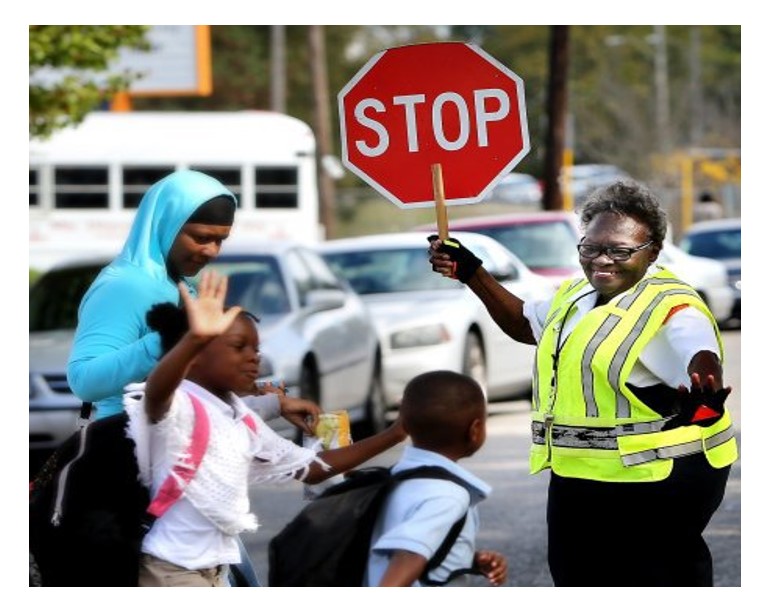
In addition to the aggravation these 'less than intelligent people who did not know how to drive' was causing me, the next challenge I encountered was a school zone. Sure enough, the crossing guard was holding up the little stop sign and I've got to stop and wait while the schoolchildren cross the street. I continued my rant; "What's with these kids today? Why are they so slow? Come on; you're young... let's go -- Move it!"
Surviving the 'Commute from Hell'
In spite of all these obstacles, by some miracle I was able to make it to the train station in a nick of time and boarded the train with only seconds to spare. When I finally got to my seat my heart was racing and I was out of breath. Even after surviving my 'commute from hell,' I was still feeling agitated and anxious about the ordeal even when I arrived at my office and it took me awhile before settling into my work routine. However, I felt aggravated that my day had gotten off to such a bad start. The rest of the day was non-eventful and I resolved that the next day I would make sure I left the house with plenty of time to spare.
Where'd They All Go?
The next day I left on time -- no procrastinating; just focusing on my morning routine. As I was driving along the same route I found myself wondering where all those 'less than intelligent people who didn't know how to drive' went? I also noticed when I came to the school zone that the schoolchildren didn't appear to be crossing the street as slowly as they did the previous day.
When The Student is Ready...
While I was pondering this... and asking myself, "Where'd they all go?" suddenly it was as if a miracle occurred... I had the insight that what was different was that I was on time. The day before I had been frustrated with myself for procrastinating and I took out that frustration by blaming the other drivers and the schoolchildren for my lateness. I was being reactive instead of proactive and accepting responsibility for my own behavior. Ironically; I realized, "I teach this stuff."
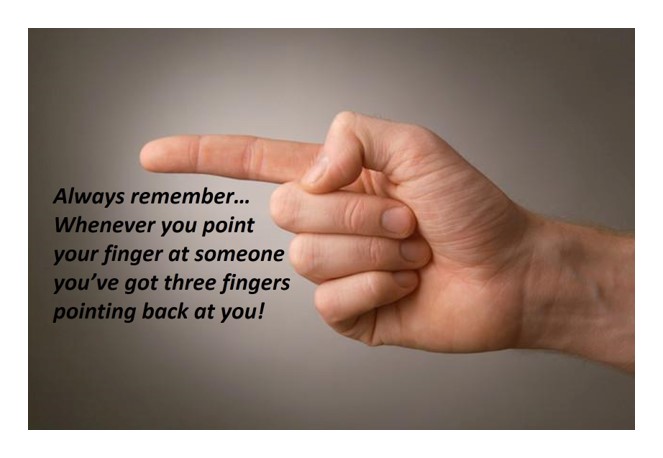
Who's Pointing at Who?
An old saying that's been a favorite of mine for many years is; "When you point a finger at someone else you've got three more fingers pointing back at you." This means I've got to look at myself and my behavior three times more than I look at someone else's.
Lesson Learned
The lesson I learned here was that even though I am a coach and educator, reactivity can creep up when least expected and, sometimes interfere with my personal and professional effectiveness. I still have human failings; however, I have tools to assist me in accepting responsibility for myself and my behavior instead of placing the blame on others. New skills and behaviors can be 'learned' and kept current. When learning new skills, a whole new world of opportunities can open up. Just as my reactivity caused me to have a rough start to my day, accepting responsibility can open a world of opportunities we might not even imagine could exist... if we are willing to take the risk and accept responsibility for ourselves.

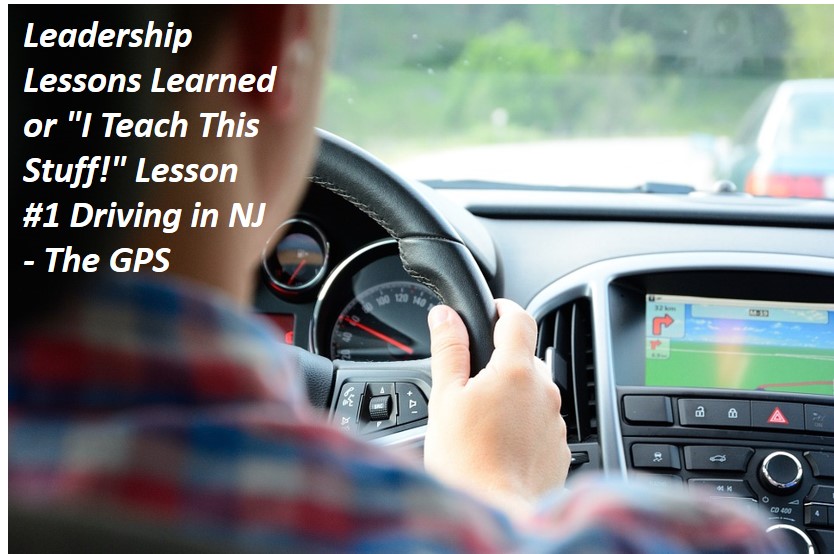
 Not long after exiting the ramp onto my preferred route I found myself in a horrific traffic jam. It turned out that a terrible accident had occurred and all lanes in both directions were closed; the traffic was at a complete standstill.
Not long after exiting the ramp onto my preferred route I found myself in a horrific traffic jam. It turned out that a terrible accident had occurred and all lanes in both directions were closed; the traffic was at a complete standstill.
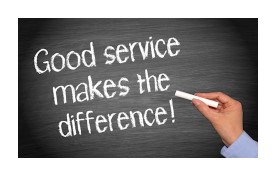
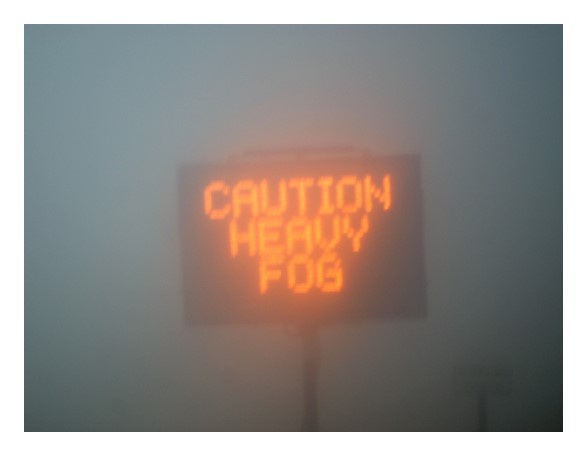 Recently I had an experience of customer service that reaffirmed this for me. On a rainy, foggy night I was driving home at about nine-thirty when the 'oil' indicator light flashed 'on' and I knew the oil level needed to be checked right away.
Recently I had an experience of customer service that reaffirmed this for me. On a rainy, foggy night I was driving home at about nine-thirty when the 'oil' indicator light flashed 'on' and I knew the oil level needed to be checked right away.
 Happy, Satisfied Customers
Happy, Satisfied Customers